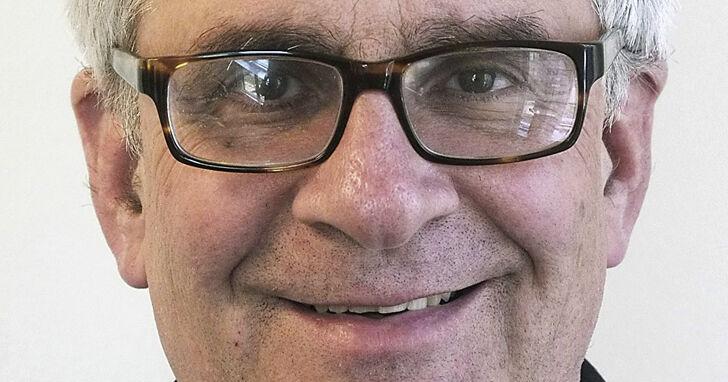One candidate worried that slavery had left the country a “house divided” but foresaw a future where “the division will no longer exist.” Another, speaking amid the wreckage of the Great Depression, declared that he would “not accept the current situation as inevitable or uncontrollable.” A third said the country needed “a new generation of leaders.” And one campaigned for a second term for a chance to “build a bridge to the 21st century.”
None of those candidates are running this year. None of the candidates this year speak in the same vein as Abraham Lincoln (1860), Franklin Delano Roosevelt (1932), John F. Kennedy (1960) or Bill Clinton (1996).
Some American elections — eight by my count, and probably more according to presidential historians and commentators — are explicitly about the future, marked by the clash of different visions for the country for the coming years and decades. They speak more to preparing the country for new challenges than to a critique of the past.
This is not that kind of election.
It's not just that President Joe Biden and former President Donald Trump are old men whose formative years were long ago: Biden was born when Germany and the Soviet Union were locked in the throes of the Battle of Stalingrad in World War II, and President Trump was born the day after World War II ended and the United States, then the only nuclear power, proposed to the new United Nations that it not build any more nuclear weapons.
This goes beyond the fact that 77% of Americans are younger than the two major party candidates vying for the White House, an unusually low figure: A century ago, more than 95% of Americans were younger than Trump and Biden are today.
Rather, both candidates are rooted in a much earlier America, a time when things were less complex, less diverse and less threatening from multiple centers of power abroad.
Even applying my guide to issues of generational politics — age matters less than youth — these two candidates are long past their sell-by date.
When they were born in America, there were no major league baseball teams west of St. Louis or south of Washington, the AFL and CIO had not yet merged, the Philippines was still under American rule, India was still a British colony, and the state of Israel did not exist.
Biden turned 18 during the Congo Crisis. Trump turned 18 when The Beatles first performed in Australia. Today, the Congo Crisis is largely forgotten in the United States. The Beatles broke up 54 years ago, before Marco Rubio, the Republican senator from Florida who is a leading candidate to be Trump's running mate, was born.
Biden went to Washington during the presidency of Richard Nixon, a time when Montana's Mike Mansfield was Senate Majority Leader, Oklahoma's Carl Albert was Speaker of the House, Arkansas' Wilbur Mills was Chairman of the House Ways and Means Committee, and more than 10% of his colleagues in the Senate were racists. All of these people are now deceased.
Trump first appeared on the front page of The New York Times the year Biden became a senator. Three years later, the paper published a photo of Trump standing next to his Fleetwood Cadillac, which bore the license plate “DJT,” Trump's nickname before he became president. That year, Biden spoke at the University of Scranton's commencement, using words his rivals (and perhaps Biden himself) would use now: “I don't think America has ever been more filled with doubt than it is today.”
It wasn't always this way in the United States. In 1828, Andrew Jackson ran for president with a new vision for the nature of American democracy. The battle of 1896 was between supporters of a monetary system based on silver (the view of the Democratic candidate William Jennings Bryan) and one based on gold (the view of William McKinley, who won the contest).
In 1980, Ronald Reagan faced off against President Jimmy Carter, offering differing views on the future of the size and scope of the federal government. Twelve years later, a young governor with remnants of the Baby Boomer generation (Bill Clinton) faced off against a World War II veteran (Cold War President George H. W. Bush). And then, in 2008, Barack Obama's emergence as the Democratic candidate was a rallying cry for America's changing demographics.
Trump's campaign speeches have been full of venom for the grievances he has allegedly experienced and marked by talk of “revenge” for past offenses. (Indeed, some of his allies have outlined plans for dramatic reforms to the federal bureaucracy, but the candidate rarely mentions them, and it is unclear whether he has the memory, will or desire to pursue that blueprint.) Biden wants to “get the job done” — to advance established priorities.
All of this seems to coincide with a gloomy mood in the country. “What is to come will certainly be worse than what came before,” historian Bruce Catton wrote in his classic 1953 book about the start of the fourth year of the Civil War, “The Quiet at Appomattox.” This succinctly sums up the nation's outlook today, amid a flurry of talk of the civil war.
Overall, like all elections where the past is a bigger factor than the future, this race is a policy desert.
“Actual policy is playing a much smaller role this year than in past elections,” said Jake Haselswort, a political scientist at the University of Missouri's Truman School of Government and Public Policy. “For Biden, his vision of the future is something he's already been trying to achieve. For Trump, his plan for executive branch reform is fundamentally about him, and it gives him a chance to air some grievances.”
The 2024 election is supposed to be a chance for people to air their discontent, but there is a sense that the contest between two men they don't want as major party finalists is itself one more source of national discontent.

